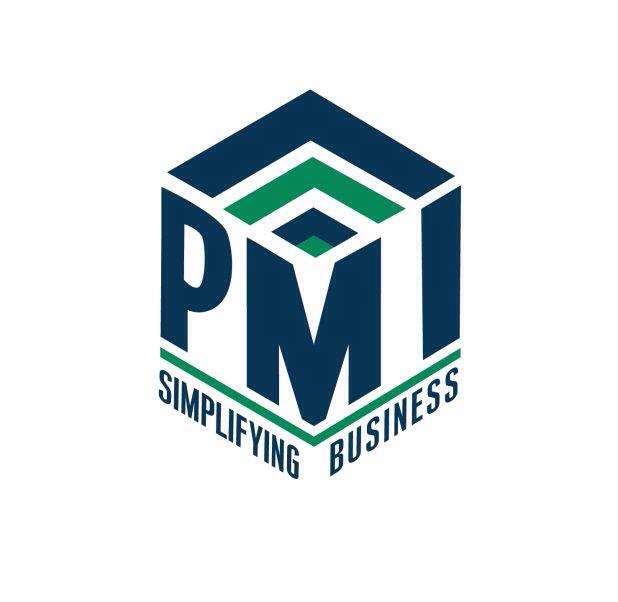Title Page
-
Organization/Department Name
-
Location
-
Conducted on
-
Prepared by
Procurement Checklist (Local Government Purchasing)
AUTHORITY & RESPONSIBILITY
-
Is there statutory or ordinance authority for placing purchasing authority with one official or department?
-
Does the authorization extend to federally funded programs?
-
Does the authorization prohibit delegation of portions of the authority to other units in the government?
-
If not, what delegations of authority are currently in effect?
-
Is there a written procurement statute, ordinance, or policy statement...
-
• locating purchasing responsi-bility in a special position within the government independent of major using activities?
-
• describing the overall pur-chasing goals & objectives?
-
• specifying the authority of the purchasing department in all aspects of acquisition, contract administration, quality assurance, and surplus property transfer and disposal?
-
• specifically setting out all aspects of purchasing delegated to other departments, and the manner in which such activities are to be monitored & controlled by purchasing?
-
• providing that purchasing may promulgate implementing regulations?
-
• covering a code or standard of conduct governing the performance of purchasing officials and personnel as well as contractors or their agents?
-
Do the statutes, ordinances, or regulations prescribe dollar limits for each of the varying degrees of formality used in soliciting bids?
-
If so, list source, limits, and degree of formality
-
Does purchasing have written policies & guidelines defining what factors are to be considered in determining the responsiveness of a bid as well as the contractor's capacity to perform?
-
Are these factors included in the invitation for bids so that the potential bidder knows what is required?
-
Does purchasing have written policies & guidelines governing the use in the bid specification of such clauses as...
-
• Option for additional units above the specific quantity?
-
• Alternate prices, with & without trade-ins?
-
• Conditions under which all bids may be rejected in whole or in part?
PLANNING & SCHEDULING ACQUISITIONS
-
Is the purchasing department included in all top-level planning affecting future procurement practices or needs?
-
Does purchasing have written instructions governing itself or using departments and agencies...
-
• to forecast future item needs?
-
• to provide past usage data?
-
Is the government's financial management information system structured to accumulate such data as quantities purchased, ordering frequencies, vendor performance, and unit prices per transaction?
-
Does the purchasing department use market research to secure economic information which may affect purchasing, such as...
-
• current market conditions of items bought on long-term contracts?
-
• changes in local program needs?
-
• technical progress affecting supply or equipment production?
-
• seasonal requirements or fluctuating markets?
-
• transportation costs?
-
Are value analysis appraisals made annually for a stipulated percentage of items being procured?
-
If so, which of the following considerations are covered by the appraisals
-
• new sources of supply?
-
• standardization of items?
-
• identification of new and better products?
-
• identification of alternative products, including aspects of price and quality?
-
• storing and handling, vendor stocking costs?
-
other? Specify
-
Does purchasing review at least annually past usage and requirement forecasts to assess the potential for consolidating and/or reducing purchase requirements?
-
Does purchasing have an ongoing program to assess the appropriateness of the manner used to satisfy requirements?
-
Does the program involve the use of questionnaires or discussions with other government units as well as prospective suppliers?
-
Does purchasing use for satisfying requirements contracting methods such as...
-
• definite quantity, definite period?
-
• minimum (guarantee) quantity, definite period?
-
• estimated (indefinite) quantity, definite period?
-
• estimated (indefinite) quantity, indefinite period (until canceled by either party)?
-
Has the decision to use a particular form of contracting for satisfying specific requirements been reassessed during the last year?
-
Does purchasing make lease v. purchase comparisons in acquiring equipment, such as vehicles?
-
Does purchasing evaluate whether it is more economical to make the item or perform the service in-house v. contracting out?
-
Does purchasing...
-
• monitor frequency & volume of purchases of the same or similar items to see whether a term contract might be cheaper?
-
• monitor different departments' purchase requests for the same or similar items to see whether con¬solidation may achieve economies?
-
• have written procedures to govern how such potential is to be identified?
-
• require that requisitions or purchase requests be signed by responsible department officials?
COMPETITION
-
Does a statute, ordinance, or regulation require purchasing to use competitive procedures for acquiring supplies, materials, equipment, and services other than professional?
-
Does purchasing..
-
• participate in contracting for professional services?
-
• prescribe procedures followed in such contracting?
-
• review the procurements made for compliance with such procedures?
-
In securing formal bids for contract purchases, does purchasing...
-
• prepare or have the authority for review & approval of bid invitations?
-
• maintain & update a list of prospective bidders?
-
• have written criteria governing the addition, deletion, and reinstatement of bidders and vendors, and the potential of bidders to perform under the terms and conditions of the proposed procurement?
-
• have written procedures governing the receipt, control, opening & evaluation of bids?
-
• have authority to determine which bids have the terms & conditions of the invitation?
-
• maintain a record (such as a bid history record) to help purchasing identify collusive bidding practices?
-
Is there a provision governing procurement when formal bidding is not required?
-
Are written records required for all informal negotiations except inprest fund purchases?
-
Is the number of vendors required to be contacted under various conditions specified?
-
Is there a policy stipulating the conditions under which blanket purchase orders may be used?
-
Is there a provision defining the special procedures to be followed when competitive procedures are not used...
-
• in emergencies?
-
• where there is no responsible competition, or one source; where patents or proprietary rights exist; or where stand-ardization/interchangeability is advantageous?
-
• when items are to be acquired solely for testing?
-
Are there statutes, regulations, or policies affecting open competition, such as "local purchase" requirements?
-
Is there a formal program for identifying suppliers not previously solicited?
-
Is there a requirement to document the results of the program periodically?
STANDARDIZATION & SPECIFICATIONS
-
Does purchasing standardize items commonly used by two or more departments or agencies?
-
Is there a central stockroom from which all departments & agencies are required to draw supplies & equipment?
-
Is there a catalog of items available from the stockroom?
-
Does purchasing require written justification for item acquisition outside the stockroom standard?
-
Where specifications are prepared for special items or services by departments & agencies, does purchasing have the power to review, modify, and approve them?
-
Are brand names avoided or expressly stated to be only descriptive (identifying salient features) and not restrictive?
-
Are performance specifications rather than prescriptive specifications used?
-
Does purchasing consider using commercial standards, or specifications developed by the Federal, State, or other local government units and found acceptable, in lieu of developing its own specif i-cations?
-
Does purchasing use qualified product lists or lists of acceptable brands as an alternative to developing its own specifications?
-
Are there written criteria covering procedures for placing and removing products and brands from these lists?
INSPECTION & TESTING
-
Does purchasing have the authority to establish and oversee a program of inspection of deliveries to insure that items delivered meet specifications?
-
Are there written instructions governing receipt & inspection of deliveries?
-
Does purchasing routinely monitor the inspection program?
-
Has there been a determination as to...
-
• The items to be tested to determine compliance with specifications?
-
• The frequency of the testing?
-
• Those who should do the testing?
-
Are there written procedures covering the handling of user and/or contractor complaints?
PROPERLY MANAGEMENT
-
Does purchasing participate in the inventory procedures of the government to insure that...
-
• expendable property is properly controlled?
-
• nonexpendable property is:<br>- identified?<br>- assigned for accountability to specific units of government?
-
• periodic inventories of expendable and nonexpendable property are taken?
-
Does purchasing secure a copy of the inventory documents for all units of government so that it may identify equipment which may be available to reduce or eliminate purchase of additional items?
-
Is purchasing assigned the authority to supervise the surplus and scrap programs?
-
Are spot checks made and records kept of equipment utilization?
-
Does purchasing have written procedures for...
-
• timely identification and reporting of surplus & scrap items to purchasing?
-
• notifying other departments & agencies of available usable surplus?
-
• disposing of unneeded or unusable items?
PROFESSIONAL DEVELOPMENT
-
Does the local government encourage the purchasing officials and technical staff...
-
• to keep current with procurement trends (e. g., affiliate with professional purchasing associations)?
-
• to secure formal training and education as a supplement to their job-acquired knowledge?
-
Does the local government provide support for (1) & (2) above by providing funding?
COOPERATIVE PURCHASING
-
If there are no statutory prohibitions, does purchasing...
-
• enter into joint or cooperative purchasing agreements with other local government?
-
• purchase from State contracts?
-
• have a program for continually searching for ways to increase potential savings through increased use of cooperative pur-chasing arrangements?
-
Where cooperative purchasing is used, does purchasing have a program for evaluating any additional costs involved to determine whether the total costs may be higher than costs of buying separately?
AUDIT & EVALUATION
-
Is there an internal or external audit of the procurement system to evaluate the effectiveness or economy with which it is making purchases?
-
Are annual performance goals, both quantitative and qualitative, established for the purchasing unit?
-
Does purchasing report periodi-cally on its performance?
-
Is management required to measure the purchasing organization's performance?
-
If so, is this periodically accomplished and documented?
-
Which of the following indices are maintained or otherwise available to monitor purchasing activities:
-
• purchasing cost (includes cost of central stores operation) per $1,000 of procurement?
-
• purchasing cost per purchase order issued?
-
• cost of central stores per $1,000 of stores procurement?
-
• user complaints?
-
• out-of-stock condition?
-
• dollar value of inventory?
-
• emergency purchases?
-
other? Specify
Completion
-
Comments/Recommendations
-
Prepared by: Full Name and Signature









